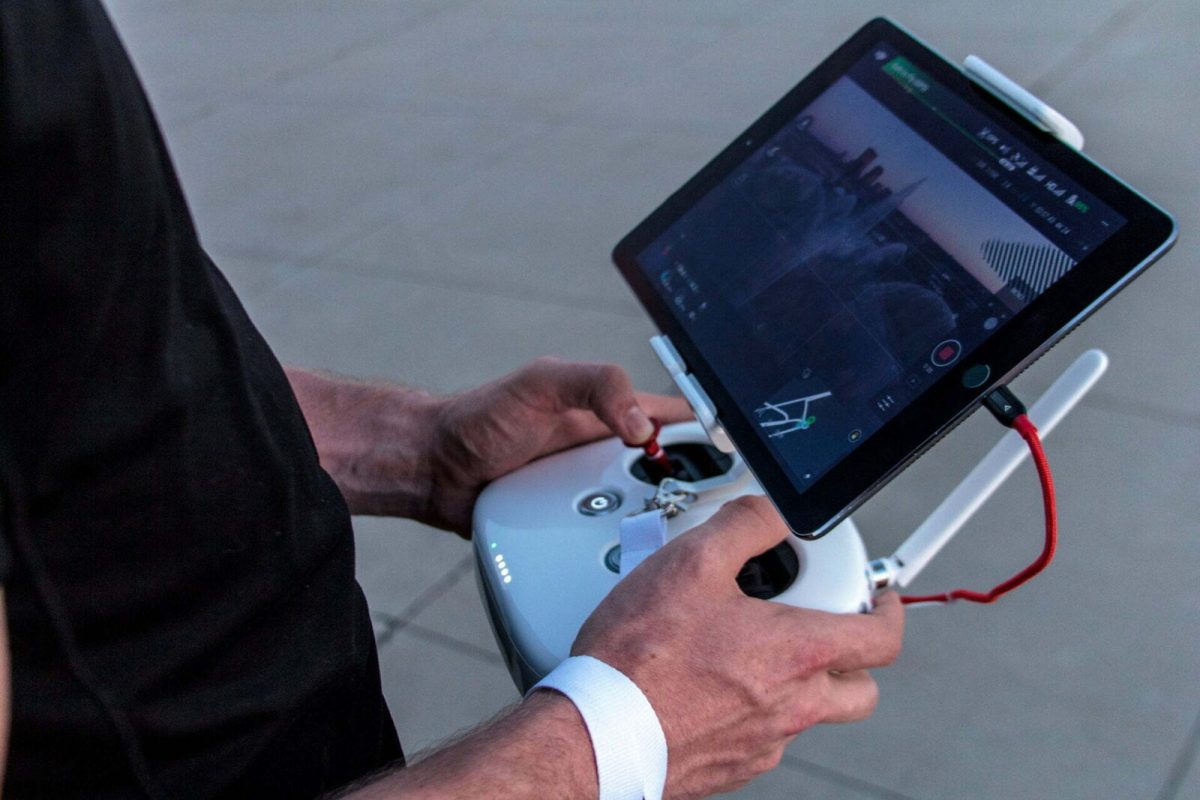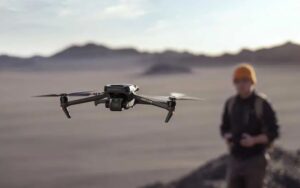How to Start a Successful Drone Business in 2025

How to Start a Successful Drone Business in 2025. Are you fascinated by drones and looking to turn your passion into a profitable business venture? Starting a drone business in 2025 can be an exciting and lucrative opportunity, given the industry’s rapid growth. However, as competition intensifies, having a solid plan and executing it flawlessly is crucial to standing out.
This comprehensive guide will walk you through the steps to start a successful drone business in 2025. We’ve covered you, from acquiring the necessary licenses to effectively marketing your services. Let’s dive in!
1. Obtain the Required Certifications and Licenses– Get Certified
The first step in starting your drone business is to obtain FAA certification. You’ll need to pass the Part 107 test with a score of at least 70% to become a commercial drone pilot. The applicable regulations depend on where you live, so research your local laws to determine whether starting a drone business is viable.
To prepare for the Part 107 test, you can enroll in an online course like the Drone Pilot Ground School, which covers drone flight operations, national airspace systems, drone laws, FAA regulations, micrometeorology, and more. You can also use study guides and practice tests to boost your confidence.
Once you have your certificate, you can register your drone with the FAA and get a unique identification number. You also need to follow the safety rules and guidelines for flying drones, such as keeping your drone within your line of sight, avoiding flying over people or moving vehicles, and respecting others’ privacy.
A drone business must comply with regulations and obtain the necessary certifications and licenses. In the United States, for example, you need to get a Remote Pilot Certificate from the Federal Aviation Administration (FAA) to fly drones legally for commercial purposes.
2. Identify Your Niche and Target Market
The first step in launching a drone business is identifying your niche and target market. Drones have numerous applications, including aerial photography and videography, surveying and mapping, inspection services, agriculture, and more. Assess your skills, interests, and expertise to determine which niche aligns best with your capabilities.
Research your target market thoroughly to gain a comprehensive understanding of their needs and preferences. Identify the industries or sectors that can benefit most from your drone services. This will help you tailor your offerings and marketing strategies to maximize appeal to potential clients.
Actions specific to your country or region, and ensure you fulfill all the requirements. A comprehensive drone pilot training program will help you gain the necessary knowledge and boost your credibility as a professional drone operator.
There are many drone business ideas, but you must identify one that aligns with your skills, interests, budget, and market demand. Some of the most popular drone business niches are:
- Aerial photography and videography: One of the most common and profitable drone business niches. You can offer your services to real estate agents, wedding planners, event organizers, filmmakers, tourism agencies, and other relevant professionals. You can capture stunning images and videos from different angles and perspectives that traditional cameras cannot.
- Mapping and surveying: This is another lucrative drone business niche that collects and analyzes geospatial data for various purposes. You can offer your services to construction, mining, and agricultural companies, as well as environmental agencies and more. You can use drones to create accurate maps and models of landforms, structures, vegetation, and other features.
- Inspection and monitoring: This niche in the drone business uses drones to inspect and monitor assets and infrastructure. You can offer your services to companies across multiple sectors, including energy, telecommunications, transportation, insurance, and more. You can use drones to detect faults, damage, leaks, corrosion, and other issues in hard-to-reach areas.
- Delivery: This emerging niche in the drone business involves using drones to deliver goods and services to customers. You can offer your services to e-commerce, food delivery, and medical delivery companies, among others. You can use drones to reduce delivery time, cost, and carbon footprint.
These are just some examples of drone business niches from which you can choose. You can combine different niches or create your unique niche based on creativity and market research.

3. Invest in High-Quality Equipment
To deliver top-notch services, you need to invest in high-quality drone equipment. Research the market to find drones that suit your niche and business requirements. Consider factors like flight time, payload capacity, camera quality, and stability.
Additionally, invest in supporting equipment such as spare batteries, propellers, memory cards, and a reliable ground control station. Quality equipment ensures the safety and efficiency of your operations, ultimately leading to satisfied clients and positive word-of-mouth.
The third step is to get the right equipment for your drone business. Depending on your niche and budget, you may need different types of drones, cameras, sensors, software, and accessories. Some of the factors you need to consider when choosing your equipment are:
- Performance: You need a drone that can fly fast, far, high, and stable. It also needs to withstand different weather conditions and environments.
- Quality: You need a camera that captures high-resolution images and videos with accurate color and a wide dynamic range. It would be best to have a sensor to collect precise data with minimal noise and distortion.
- Functionality: You need software that can process, edit, and analyze the images, videos, and data captured by your drone. You also need software to control, monitor, and plan your drone flights.
- Compatibility: You need equipment that works well with other devices and platforms. You also need equipment that can be easily updated and upgraded.
Some of the best drones for aerial photography and business in 2025 are:
- DJI Mavic 3: This compact and powerful drone can fly for up to 46 minutes and reach a maximum distance of 15 km. It has a 4K camera with a 28x zoom and a 1-inch sensor. It also features advanced capabilities such as obstacle avoidance, active tracking, and hyper-lapse.
- Autel EVO II: This versatile and reliable drone can fly for up to 40 minutes and reach a maximum altitude of 9 km. It has a 6K camera with a 10x zoom and a 1/2-inch sensor. It also features omnidirectional obstacle avoidance, dynamic tracking, orbiting, and more.
- Skydio 2: This intelligent and autonomous drone can fly for up to 23 minutes and reach a maximum distance of 3.5 km. It has a 4K camera with a 3x zoom and a 1/2.3-inch sensor. It also features obstacle avoidance, follow-me, cinematic capabilities, and more.
- Holy Stone: Explore the Unknown, Start with Drones. Master the sky and take in all the beautiful scenery. GP3 Axis Gimbal GPS Drones with 4K EIS Camera
S Drone with 3-Axis Brushless Gimbal and 4K Camera
S Drone with 3-Axis Brushless Gimbal and 4K Camera -
Some of the best cameras in 2025 are:
- GoPro Hero 10: This rugged, waterproof camera captures 5.3K video and 23MP photos. It features hyper-smooth stabilization, time warp, live streaming, and more.
- DJI Zenmuse X7: This professional and cinematic camera captures 6K video and 24MP photos. Its features include a Super 35 sensor, interchangeable lenses, color science, and more.
- Sony RX0 II: This compact, lightweight camera captures 4K video and 15.3-megapixel photos. It includes features such as a flip screen, eye AF, image stabilization, and more.
Some of the best sensors for drones in 2025 are:
- Velodyne Puck LITE: This lidar sensor can measure distance and depth with high accuracy and resolution. It can scan up to 100 meters with a 360-degree field of view.
- FLIR Vue Pro R: This thermal sensor offers high sensitivity and resolution for precise temperature and heat measurement. It can capture radiometric data at 640 x 512 pixels.
- Parrot Sequoia+: This multispectral sensor can measure light and color with high precision and resolution. It can capture data in four spectral bands: green, red, red edge, and near-infrared.
Some of the best software for drones in 2025 are:
- Pix4Dmapper is a photogrammetry software that uses drone images to create accurate maps and models. It can process 2D and 3D data and produce outputs such as orthomosaics, point clouds, and contours.
- DroneDeploy: This cloud-based software enables planning, control, and analysis of drone flights. It can automate workflows, optimize routes, and generate insights from drone data.
- Litchi is a mobile app that enhances drone functionality. It can enable waypoint missions, panoramas, focus, and more features.
Some of the best accessories for drones in 2025 are:
- DJI Smart Controller: A remote controller that lets you operate drones with ease and convenience. It features a built-in screen, joysticks, buttons, and additional controls.
- PGYTECH OneMo Backpack: Designed to store and protect drones and other equipment. It has multiple compartments, pockets, and straps to organize and secure your gear.
- Anker PowerCore+: This power bank can charge and extend the battery life of drones and other devices. It offers high capacity, fast charging, and multiple ports to power your devices.
4. Develop a Robust Business Plan
A well-structured business plan is the foundation of any successful venture. Outline your mission, vision, and core values. Conduct a thorough market analysis to identify competitors, assess market trends, and determine pricing strategies. Define the unique selling propositions (USPs) that distinguish you from others.
Include a detailed financial plan that projects your expenses, revenue streams, and potential return on investment (ROI). A comprehensive business plan helps you stay organized and is a valuable resource when seeking funding or partnerships.
5. Build an Engaging Online Presence
In today’s digital age, establishing a solid online presence is vital for the success of any business. Create a professional website that showcases your drone services, portfolio, and contact information. Optimize your website with relevant keywords to improve its visibility in search engine results.
Leverage social media platforms like Instagram, Facebook, and LinkedIn to showcase your work, engage with potential clients, and build a network within the industry. Regularly update your social media accounts with captivating content, including stunning aerial visuals and informative articles.
6. Develop Strategic Partnerships
Collaborating with other businesses and professionals can significantly boost your drone business. Identify potential partners —such as photographers, real estate agents, construction companies, or surveyors —who can benefit from your drone services. Establish mutually beneficial partnerships that enable you to leverage their existing client base while delivering value-added services.
Networking within the drone community is equally important. Attend industry events, join online forums and groups, and participate in conferences to expand your network and stay up to date on the latest trends and technologies.
7. Offer Exceptional Customer Service
In a competitive market, exceptional customer service can be a differentiating factor. Strive to deliver an outstanding experience for your clients from start to finish. Respond to inquiries promptly, address concerns effectively, and provide your services on time and within budget.
Maintain open lines of communication and seek feedback after each project. Positive reviews and testimonials from satisfied clients can significantly enhance your reputation and attract new business opportunities.
8. Stay Informed and Adapt to Change
The drone industry is continually evolving, with new regulations, technologies, and market trends emerging regularly. Stay informed about industry updates and adapt your business strategies accordingly. Embrace innovation and explore new applications for your drone services to stay ahead of the competition.
Invest in continuous learning and professional development. Attend workshops, pursue advanced certifications, and collaborate with experts to enhance your skills and knowledge. This commitment to growth and improvement will benefit your business and position you as an industry leader.
9. Implement Effective Marketing Strategies
To outrank other websites and attract a steady stream of clients, it’s essential to implement effective marketing strategies. Here are some tactics to consider:
- a) Search Engine Optimization (SEO)
Optimize your website for search engines to improve your organic visibility. Conduct thorough keyword research to identify high-ranking, relevant keywords in the drone industry. Incorporate these keywords into your website’s content, meta tags, headings, and URLs to enhance your search engine optimization (SEO).
Create informative, engaging blog posts that address common questions and concerns among your target market. Regularly publish new content to establish your website as a reliable source of information in the drone industry.
- b) Pay-Per-Click (PPC) Advertising
Consider running PPC advertising campaigns to increase your visibility on search engine results pages (SERPs). Platforms like Google Ads let you bid on keywords relevant to your drone business and show your ads to a targeted audience. Craft compelling ad copy highlighting your unique selling propositions and encouraging users to click through to your website.
- c) Social Media Marketing
Leverage the power of social media platforms to reach a wider audience and engage with potential clients. Share captivating drone photos and videos on platforms like Instagram and YouTube to showcase your skills and attract followers. Utilize Facebook and LinkedIn to join relevant groups, engage in discussions, and establish yourself as an industry authority.
- d) Email Marketing
Build an email list of interested prospects and existing clients to nurture relationships and promote your services. Send regular newsletters containing valuable content, updates on your latest projects, and exclusive offers. Personalize your emails to make recipients feel valued and encourage them to engage with your business.
10. Provide Value Through Educational Resources
Establish yourself as an industry expert by providing your audience with valuable educational resources that offer practical insights and actionable guidance. Create comprehensive guides, tutorials, and case studies that address common challenges and provide actionable solutions. Offer free webinars or workshops to share your knowledge and answer participants’ questions.
By positioning yourself as a trusted source of information, you build credibility and attract potential clients seeking expert advice. Valuable educational resources can also be shared on social media and other platforms, increasing your visibility and driving traffic to your website.
11. Focus on Positive Customer Reviews and Testimonials
Positive customer reviews and testimonials can significantly impact your online reputation and search rankings. Encourage satisfied clients to leave reviews on platforms like Google My Business, Yelp, and industry-specific directories. Respond promptly and graciously to all reviews, whether positive or negative, to demonstrate your commitment to customer satisfaction.
Display testimonials prominently on your website to highlight positive client experiences. Potential customers often rely on reviews and testimonials to make informed decisions, and a substantial collection of positive feedback can significantly influence their choice to engage with your drone business.
12. Continuously Monitor and Improve
Launching a successful drone business is an ongoing process that requires constant monitoring and improvement. Regularly analyze your website’s performance using tools such as Google Analytics to understand user behavior, identify areas for improvement, and track the effectiveness of your marketing efforts.
Stay informed about industry trends, technological advancements, and regulatory updates to stay ahead in the competitive landscape. Continuously refine your skills and invest in professional development opportunities to stay ahead of the curve.
Remember, success in the drone business is built on delivering exceptional service, building strong client relationships, and continuously striving for excellence.
Conclusion
Starting a drone business in 2025 can be highly rewarding if approached strategically and with dedication. Identify your niche, obtain the necessary certifications, invest in high-quality equipment, and establish a strong online presence. Develop a robust business plan, forge strategic partnerships, and prioritize exceptional customer service. Stay informed about industry trends and adapt to changes to ensure long-term success.
Launching a successful drone business requires patience, persistence, and a passion for excellence. By following these guidelines and continuously refining your skills, you can position yourself as a trusted expert in the drone industry and outrank other websites in Google search results.
Popular Posts
February 11, 2026
February 11, 2026
January 23, 2026
January 22, 2026
November 14, 2025
November 04, 2025






Comments are closed.